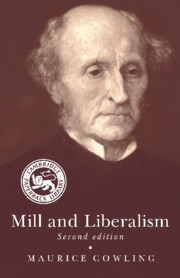6 - The authority of the clerisy
Published online by Cambridge University Press: 05 November 2009
Summary
The direction of Mill's doctrine having been established, it remains to ask what attitude should be taken to it. And the first position to which an attitude should be taken arises from Mill's commitment to claim extensive authority for the clerisy. Consideration of the functions of the clerisy raises important questions about the relationship between political philosophy, political practice and the nature, and men's knowledge, of moral Truth. These questions are important in establishing the character of Mill's teaching, and of first consequence in assessing its value. To accept Mill's view is to capitulate in advance, not so much to his political philosophy, as to his political style. Superior minds are supposed to be free from the confused uncertainties of practice: the clerisy is a body of superior minds; its practical authority is grounded on the fact that this is so. Mill is consistent in wishing, on the one hand, to relieve the agents of doctrinal rectitude from the difficulties inherent in exercising political power, whilst, on the other, ensuring that society gets the benefit of their wisdom. At some times the clerisy is to be more directly political than at others, but at no point are its members to be engaged in what is normally meant by the conduct of politics.
- Type
- Chapter
- Information
- Mill and Liberalism , pp. 106 - 162Publisher: Cambridge University PressPrint publication year: 1990

